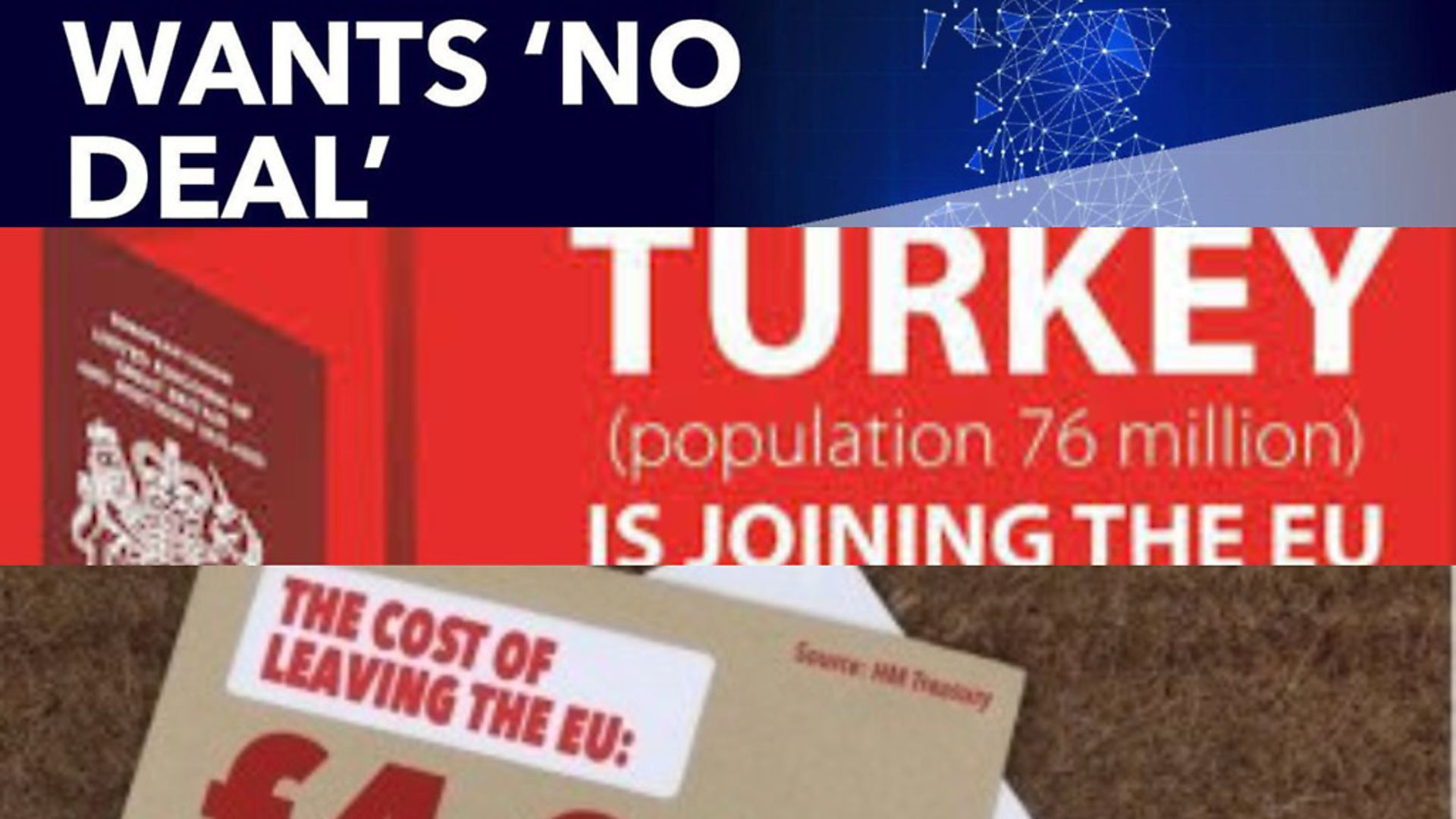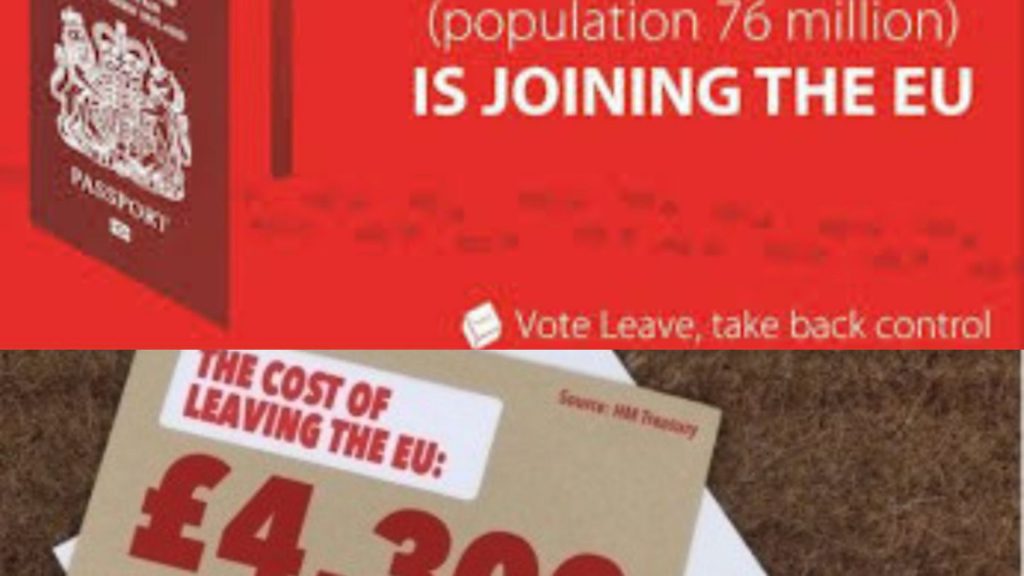
A campaign group is pushing back against the onslaught of misleading and untransparent political adverts, which are increasingly affecting our elections and referendums.
“I think it’s crazy that there’s much more rules for selling shampoo than there are for the most important political processes,” said media consultant and campaigner Alex Tait. Along with fellow ad executive Benedict Pringle and a group of volunteers from the industry, he’s set up the Coalition for Reform in Political Advertising to ensure that standards are comparable to the commercial advertising industry. In response to overwhelming changes in digital media, they are recommending the biggest shake-up of political advertising for decades.
“There’s a real need for subject matter experts, for people who work in advertising, to come out with some of the solutions,” said Tait.
He pointed to the example of shadowy Brexiteer campaigners Britain’s Future (although as a politically neutral group, the coalition gives examples of cross-party and Remain misinformation too). In April, the group spread claims on Twitter about public support for a no-deal Brexit that Full Fact later called “misleading” – but not before they had been shared thousands of times.
The ads were fronted by scriptwriter Tim Dawson, reported the Guardian, but he didn’t respond to requests on whether or not he had a financial backer.

“There was no way to know who was behind it,” said Tait. “It took a lot of investigative journalism by the Guardian and Buzzfeed to uncover that. The money could have been coming from anywhere. It’s a good example of why political advertising needs to be regulated.”
The coalition has devised four key reforms that would bring politician’s adverts into line with the standards of the rest of the industry.
All objective factual claims should be pre-cleared prior to publication, they say, which is a standard that the commercial advertising industry is well adapted to. They also also want digital adverts to feature the same watermarks or imprints that hard copy material has to have, to show their origin. A database for all paid-for political adverts would make targeted ‘dark ads’ visible to all. And a regulatory body like the Advertising Standards Agency (ASA) would oversee it all, with the power to issue robust fines.
Few people are even aware that the ASA only handles commercial advertising, and can do nothing with the hundreds of complaints it receives over misleading political ads. Regulation of political advertising, however, has not been updated since 1997 – long before the media landscape was overhauled by digital publishing and in particular, social media.
This has enabled lies to run round the world before the truth has got its shoes on, to paraphrase CH Spurgeon.
“It’s not just misleading claims, it’s a lack of transparency,” added Tait. ‘Dark ads’, which played a part in the 2016 Trump campaign, can only be seen by their specific intended audience, which means that highly targeted groups potentially receive differing messages. “You can actually have thousands or tens of thousands of adverts at particular audiences that are only seen by the people that it’s targeted to,” said Tait. A database of adverts would help clarify what was being said, to whom.
But are contemporary media-savvy audiences really that easily swayed by ads? What would the campaigners say to people like Brexit campaigner Andy Wigmore, who said that Russian-funded Facebook adverts “made no difference” to the referendum anyway?
Firstly, said Tait, truthfulness in advertising is enough of a concern to the public that three quarters of all complaints to the ASA are for misleading claims. But, as all advertisers know, there’s also more at work. “One of the most important points is how advertising works, which is often subconsciously, rather than consciously,” said Tait, adding that in terms of impact, what the message actually says often outweighs other factors, such as what medium the ad runs in or who is reading it.
But getting the message through to the government is taking time. The Department for Culture, Media and Sport has agreed to back the proposal, which is echoed by the Electoral Commission, for digital watermarking and an advertising database.
But, perhaps ironically, Brexit deadlock in parliament has slowed progress on further legislation. “Part of the problem we’ve encountered is the amount of air time to discuss this,” said Tait.
The campaigners are trying to get party support for the four proposals, which so far the Independent Group for Change has backed. “There are one or two parties that have been quite hard to get hold of,” said Tait – although he wouldn’t be pressed on who they are. But with possible elections hurtling towards us, there is also a pledge for parties to sign that they will uphold high standards.
But the hunger is out there. A YouGov poll commissioned by the coalition found that 80% of people would support the regulation of factual claims in political advertising – and it connects up to a much wider desire for a baseline of straight talking in politics. One need only look at how Marcus Ball’s private prosecution of Boris Johnson and his infamous “£350 million” Leave campaign claim was crowdfunded by over £200,000 all the way to the courts – even though it ultimately failed.
The coalition’s campaign could be an alternative to the criminal courts for reining politicians in, and, Tait says, still allows for the rough-and-tumble of impassioned campaigning.
“We’re not trying to stop anyone’s free speech,” he said. As their mission statement says: “We’re not calling for an end to optimistic promises or scaremongering about what the other side might do: we’re simply saying that if you want to position something as an objective fact in an advert the public have a right to be confident that it is just that.”









